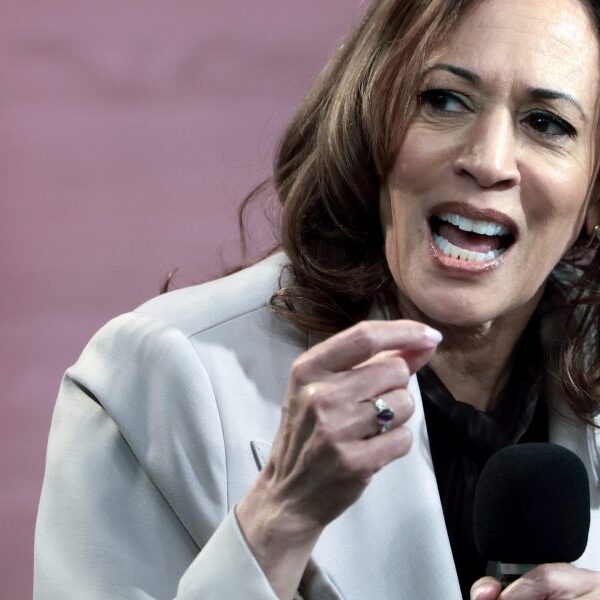

Toronto-Dominion Bank will pay almost $3.1 billion in fines and other penalties and face a cap on its US retail banking assets, after pleading guilty to failing to prevent money laundering by drug cartels and other criminals.
Two of the Canadian lender’s US units entered their pleas to the charges Thursday before a federal judge in Newark, New Jersey. The US Justice Department, Federal Reserve and Office of the Comptroller of the Currency later released statements on a “coordinated resolution” reached with the bank in exchange for the pleas.
“By making its services convenient for criminals, TD Bank became one,” Attorney General Merrick Garland said. “TD Bank chose profits over compliance with the law — a decision that is now costing the bank billions of dollars in penalties.” TD’s slogan is “America’s most convenient bank.”
The lender’s shares closed down 6.1% in Toronto, the most since March 2020.
Colombian ATMs
More than two dozen people, including two bank insiders, had previously been charged in three laundering schemes, including one involving money deposited in the US and quickly withdrawn using ATMs in Colombia. With Thursday’s resolution, the bank agreed to resolve “long-term, pervasive, and systemic deficiencies” in its US anti-money-laundering program, authorities said.
Prosecutors said the bank failed for a decade to root out suspicious activities as required under the Bank Secrecy Act, the main anti-money-laundering law. It became the largest bank in US history to plead guilty to violating that law, and the first bank to plead guilty in the US to conspiracy to commit money laundering, Garland said.
In one massive laundering scheme that authorities say helped hasten the flow of the deadly opioid fentanyl into the US, a TD manager emailed another to say: “You guys really need to shut this down LOL.”
The combined $3.1 billion of penalties includes $1.89 billion to the Justice Department, which is the largest such sanction ever imposed under the act, Deputy Attorney General Lisa Monaco said at a briefing.
“This is a sad day in our history,” Toronto-Dominion Chief Executive Officer Bharat Masrani said on a conference call with analysts. While the bank’s US money-laundering controls failed, he said, “we are fixing it and I’m 100% confident that we get to the other side and emerge even stronger.”
Cap on Growth
The bank had set aside more than $3 billion in recent months to prepare for the settlement, partly by selling off some of its stake in Charles Schwab Corp. But the asset cap will hamper a growth-by-acquisition strategy it has pursued in US retail banking for much of the past two decades.
The cap will limit TD’s two US banking subsidiaries, TD Bank NA and TD Bank USA, to $434 billion in assets, the total as of Sept. 30, the bank said in a statement. The limit won’t affect its US capital markets, Canadian or other global operations. The lender will also need permission from the OCC to open new branches or offer new products and must set up a US office dedicated to rectifying its deficiencies.
The investigations have already hit Toronto-Dominion hard, staining the end of Masrani’s decade-long tenure and forcing the lender to scrap a $13.4 billion deal to acquire US regional bank First Horizon Corp. last year.
TD Bank’s anti-money-laundering program failed on many levels to detect suspicious activities and report them to financial authorities, the US said. From January 2018 to April 2024, it failed to monitor $18.3 trillion in transactions, including all those through the domestic automated clearinghouse and most involving checks, the authorities said.
‘Shut This Down’
In a statement of facts, the bank admitted its role in three money-laundering schemes. One involved Da Ying Sze, a New Yorker who pleaded guilty in 2022 to coordinating a $653 million laundering conspiracy that involved depositing hundreds of millions of dollars from narcotics distribution, authorities said at the time. He chose to launder most of those funds through TD Bank because it had “by far the most permissive policies and procedures,” according to the statement.
To smooth the way, he gave more than $57,000 in retail gift cards to employees, the bank admitted. Bank workers at “multiple levels understood and acknowledged the likely illegality” of the massive deposits, with the manager making the “LOL” joke. The failure to file adequate currency transactions reports about the deposits “spanned numerous stores and dozens of employees,” according to the statement.
In the Colombian ATM scheme, the bank failed to enforce a limit of 15 debit cards for business accounts, which “allowed insiders to provide dozens of ATM cards to money laundering networks,” according to the statement.
With the resolution, the Justice Department will appoint a corporate monitor to oversee the bank’s anti-money-laundering program for three years. Most corporations seek to avoid intrusive monitors when resolving criminal cases.
Toronto-Dominion has more than 10 million US customers and almost 1,200 branches concentrated along the East Coast, and its American retail operations account for about a quarter of its revenue.
‘Strategic Pivot’
Analysts and investors have feared that TD’s growth in the US could be constrained by a cap similar to the one imposed on Wells Fargo & Co. in 2017, which limited that bank’s assets to about $1.95 trillion. Almost seven years later, Wells is still not out from under that sanction, which has been a major drag on its share price.
Toronto-Dominion plans to restructure its balance sheet and will reduce its US assets by about 10% so it can continue to provide loans and other services to clients under the new constraints, executives said on the analyst call. It plans to spend $500 million a year on improving its US laundering controls in fiscal 2025 and 2026.
Leo Salom, head of the company’s US retail division, said he expects US earnings “stability” after 2025. Executives on the analyst call also noted that the Canadian parent company won’t face restrictions on paying shareholder dividends or buying back shares.
“Growth in its US retail banking operations has now effectively stalled out,” Jefferies analyst John Aiken said in a report. “We expect to see a strategic pivot by TD, even if it does not walk away from US retail completely.”















